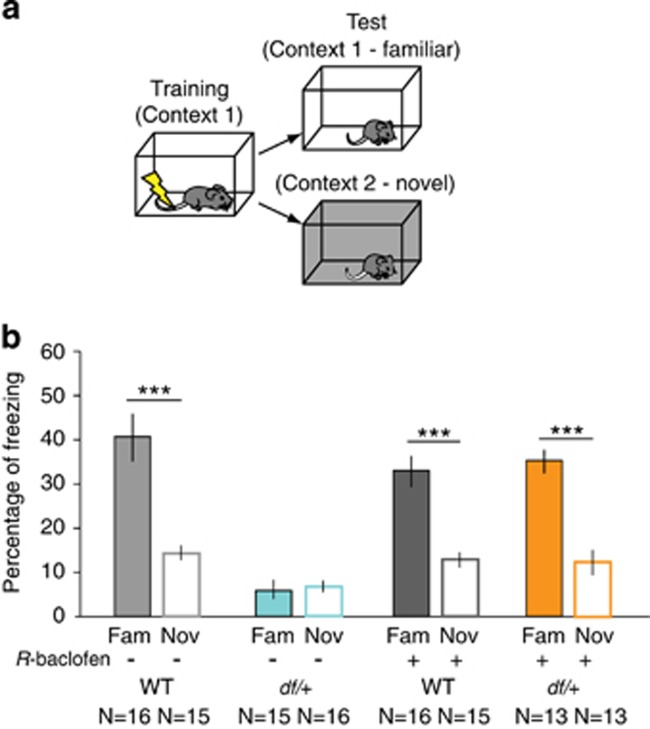Figure 2.
Chronic R-baclofen treatment restores memory deficits in a context-dependent aversive learning task in 16p11.2 df/+ mice. (a) Experimental design of context-dependent discrimination task. (b) Vehicle-treated 16p11.2 df/+ mice show no difference in freezing in the familiar vs novel context and significantly less freezing in the familiar context compared with WT mice (df/+ veh, nov vs fam: t(29)=0.227, p=0.822; WT, veh vs df/+, veh: t(29)=7.05, p<0.001). Vehicle- and R-baclofen-treated WT mice are able to distinguish a novel from familiar context (WT veh, nov vs fam: t(29)=5.70, p<0.001; WT R-baclofen, nov vs fam: t(28)=5.29, p<0.001). Upon chronic treatment with R-baclofen, 16p11.2 df/+ mice are able to distinguish a novel from familiar context as indicated by significantly increased freezing in the familiar context compared with novel context (df/+ R-baclofen, nov vs fam: t(24)=6.03, p<0.001). Three-way ANOVA, genotype: F=30.7, p<0.001; treatment: F=7.86, p<0.01; context: F=82.0, p<0.001; genotype × treatment: F=22.2, p<0.001; genotype × context: F=11.5, p<0.001; treatment × context: F=3.01, p=0.086; genotype × treatment × context: F(7,111)=17.7, p<0.001). ***p<0.001, R-baclofen vs vehicle within genotype.

